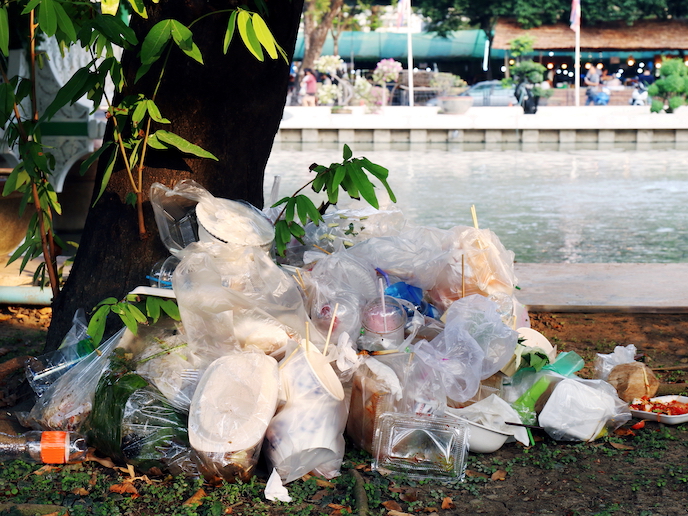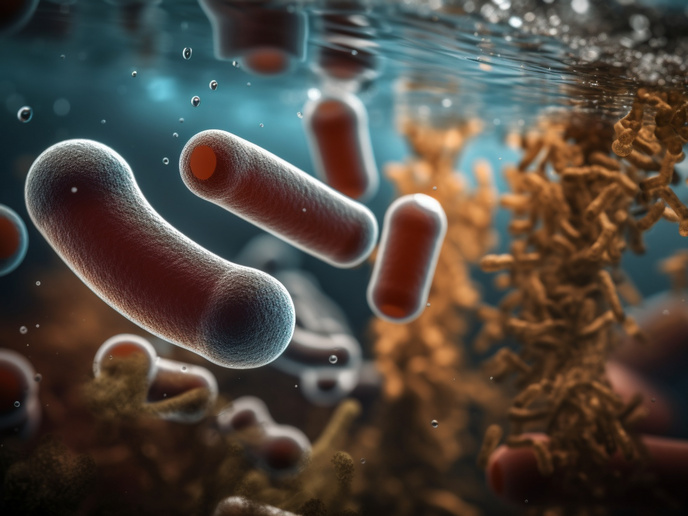Turning urban biowaste into biodegradable plastic
Pilot plants in Italy and Portugal set up with EU funding have produced a biodegradable biopolymer from waste which can be used to produce bioplastics. “Once you obtain the polymer, which is the novelty of the process, you can use typical plastics processing techniques to turn it into products for different uses,” says RES URBIS(opens in new window) project coordinator Mauro Majone, professor of chemical engineering at Sapienza University of Rome(opens in new window). Several microbial cultures produce this type of polymer inside the cells when they are ‘stressed’. “Under the stress of feast alternated with famine by feeding the cells intermittently, the microbe prefers to store the substrate within itself as a granule of polymer,” Majone explains. The biopolymer, known as polyhydroxyalkanoate or PHA: “Adds value to waste and at the same time produces non-oil-based plastics which are biodegradable and can replace present oil-based plastics,” he says. Presently these polymers are produced from crops by using pure cultures, which can be expensive. But the group developed a novel process using wastewater sludge which is available in large amounts. Several kinds of plastics used for packaging and for durables were tested. “We produced packaging films and a rigid plastic prototype of a handle which only needs a small amount of the polymer and can be used for carrying cardboard boxes. But in principle any other rigid plastic can be produced in this way,” Majone says. The project team also found that PHA film has adhesive properties and can be used in multilayer packaging. “Multilayer films generally need a thin layer of adhesives, often using polyurethanes which are oil-based non-biodegradable polymers. Now you can replace them with this bio-based, renewable, variable polymer,” says Majone.
Pilot projects
During the 3-year project, production of PHA was scaled up from the laboratory to pilot plants. A pilot biorefinery located in Treviso, close to Venice, Italy uses organic carbon in source-sorted municipal waste collection and sludge from wastewater treatment plants. The other in Lisbon, Portugal uses different organic wastes from food processing, particularly from fruit juice extraction available close by. “We learned that the process is stable and robust enough to cope with the fact that the waste is not very stable and has certain heterogeneity, and it produces a good quality polymer,” says Majone.
Cost-benefit analysis
To be cost-effective, the waste needs to be close by to avoid lengthy transportation, and processing should be adapted to local conditions. The project team conducted a technical-economic analysis of waste management systems in different parts of Europe, including Barcelona, Copenhagen, Lisbon, Trento in northern Italy and South Wales. “We wanted to integrate our new solution into existing waste management to take advantage of what is already in place,” Majone explains. One regulatory concern is that contaminants in the waste can transfer to the product. “We investigated more than 100 different types of contaminants of three families,” says Majone. “Our material meets regulatory standards. We do not need to add any specific steps to remove contaminants.” “We followed the principle of the circular economy for packaging – the regulatory need for a so-called ‘end of waste status’ – that it is no longer waste but a product. We prepared a dossier to show that it is,” he notes, though this needs to be approved country by country closer to commercialisation. The next stage is a demonstration plant to produce several tonnes of the polymer per year.







